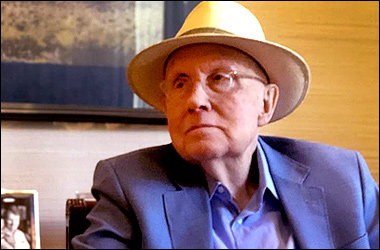By Jim Ellis
Feb. 5, 2021 — Former Senate Democratic Leader Harry Reid (D-NV) is no longer in elective office, but it appears he’s still active in politics. Now, Reid has a new cause: making Nevada the first-in-the-nation presidential nomination contest.

Former Senate Democratic Leader Harry Reid (D-NV)
Reid, and others, are arguing that neither Iowa nor New Hampshire are representative of the core Democratic Party, and therefore should not receive the undue attention from being scheduled as the first caucus and primary despite tradition yielding such.
He points out that in 2020 the Iowa caucus system became colluded and poorly administered thus leading to a situation that even today it is unclear as to who actually won the caucus vote. While Sen. Bernie Sanders (I-VT) received the most votes, it was former South Bend mayor and now US Transportation Secretary Pete Buttigieg who came away with the most delegates.
In New Hampshire, Reid contends that the eventual nominee, and of course general election winner, Joe Biden, placed fifth in the Granite State Democratic primary before his candidacy was rescued with a big primary win in South Carolina. He fails to mention, however, that Biden also lost Nevada, coming in a poor second to Sen. Sanders (40-19 percent) and just ahead of Buttigieg’s 17 percent.
Since 1952, there have been 13 New Hampshire Democratic presidential primaries in races that did not involve a party incumbent. In only five of those campaigns did the Granite State voters back the eventual party nominee. The last time the state chose a nominee who went onto win an open or challenge race for the Presidency occurred in 1976. In that year, Jimmy Carter won the New Hampshire primary, and then proceeded to unseat then-President Gerald Ford in a close general election.
In reality, however, South Carolina may actually have the best argument about moving into the first primary position. The South Carolina presidential primary system began in 1988. Since then, the state has hosted seven such Democratic elections where no president of their party was seeking re-election. In its history, the eventual party nominee has won five of the seven Palmetto State presidential primaries.




 Feb. 25, 2020 — While the Nevada Caucus counting drags on and tabulations will at some point determine just how many delegates Sen. Bernie Sanders (I-VT), former Vice President Joe Biden, and ex-Mayor Pete Buttigieg receive from the state – currently, it appears that Sanders will win somewhere between 19 and 23 bound delegate votes, while Biden and Buttigieg should both earn bound votes in the high single digits – a new US Senate poll is proving more curious today.
Feb. 25, 2020 — While the Nevada Caucus counting drags on and tabulations will at some point determine just how many delegates Sen. Bernie Sanders (I-VT), former Vice President Joe Biden, and ex-Mayor Pete Buttigieg receive from the state – currently, it appears that Sanders will win somewhere between 19 and 23 bound delegate votes, while Biden and Buttigieg should both earn bound votes in the high single digits – a new US Senate poll is proving more curious today. Feb. 24, 2020 — It is becoming clearer that the Democratic presidential contest could result in an open, or “brokered”, convention. This would occur if no candidate secures majority support after the electorates in all the voting entities have cast their ballots and the delegates’ first ballot tallies are locked into place under the individual state laws.
Feb. 24, 2020 — It is becoming clearer that the Democratic presidential contest could result in an open, or “brokered”, convention. This would occur if no candidate secures majority support after the electorates in all the voting entities have cast their ballots and the delegates’ first ballot tallies are locked into place under the individual state laws.